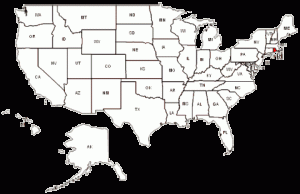Rhode Island Tax
Rhode Island State Tax
Rhode Island Income Tax
 Rhode Island state tax revenues have three main sources: income tax, sales tax, and property tax. The Rhode Island Division of Taxation regulates the tax laws and procedures in the state, including the settlement of tax rates, filing of state tax returns, and collection of sales tax and state income tax.
Rhode Island state tax revenues have three main sources: income tax, sales tax, and property tax. The Rhode Island Division of Taxation regulates the tax laws and procedures in the state, including the settlement of tax rates, filing of state tax returns, and collection of sales tax and state income tax.
Rhode Island income tax has three marginal tax brackets. Individual taxpayers and joint filers with taxable income below $55,000 must pay 3.75% of their earnings. Incomes between $55,000 and $125,000 are charged 4.75%. The highest bracket consists of incomes over $125,000 levied with 5.99% income tax rate.
Rhode Island Corporate Income Tax
All corporations that operate or generate income in Rhode Island must pay state income tax. Companies are charged 9% regardless of the amount of income. Rhode Island is ranked 6th among states with the highest maximum corporate income tax rates in the US.
Rhode Island Sales Tax
Rhode Island collects 7% sales tax on purchases of tangible personal properties and select services. Some products and services are exempted from sales tax. Among these items are groceries, raw food, prescription drugs, and inexpensive clothing items. However, pre-made and restaurant food are subject to additional special tax rates.
There are no local sales tax and specials sales tax jurisdictions in Rhode Island. Items purchased from outside the state are subject to 7% use tax.
Rhode Island Property Tax
Property tax is calculated by multiplying the property’s fair market value to the local property tax rate. Rhode Island collects the 5th highest median property tax rates in the United States. Property tax duties take up about 4.92% of the residents’ annual income.

